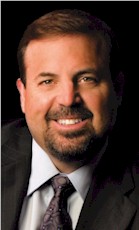
- Mobile Technology
- A Symbiotic Relationship: How Mobile Technology Impacts Both Guest Experience and Hotel Operations
According to a recent study by Deloitte entitled Hospitality 2015: Game changers or spectators? , mobile applications will be a key area for technological development in the industry over the next year. As more consumers than ever before are equipped with smart phones and tablets to aid in booking travel, hoteliers are finding new ways to interact with guests and build brand awareness via mobile devices. READ MORE



















